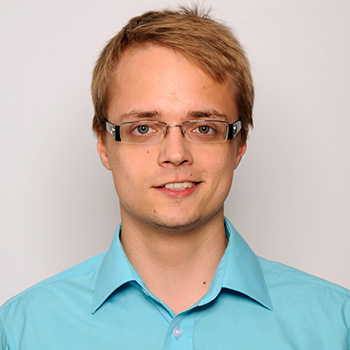 Name: Elias Tuomaala
Name: Elias Tuomaala
Class: 2019
Concentration: Applied mathematics
Hometown: Helsinki, Finland
Internship focus: Computational economic modeling
Internship location: Cambridge Econometrics in Cambridge, United Kingdom
Describe your internship.
Cambridge Econometrics (CE) is an economic consultancy largely focused on a field of post-Keynesian economic analysis known as input-output modeling. I spent the summer working at their Cambridge headquarters and developed the software foundation for a new generation of the firm’s economic models. CE was in the midst of transitioning their proprietary software to a different programming language, so I got to design a brand new software architecture from the scratch.
What is one of the most valuable lessons you learned from this internship, and why?
One of the important lessons was that real-life computational modeling deals with very different problems than we do in the classroom. Theoretical economics classes in particular focus on deriving elegant and exact mathematical solutions. In real-world modeling, those matter little as elegance doesn’t show to the end-user and computational techniques can usually find a good approximation. Instead, you need to overcome issues like missing data points, inconsistent data publishing practices, and interfacing with other models of differing design.
What is one of the biggest challenges you faced during this internship, and why? How did you overcome it?
A notable challenge was navigating the skill sets of my colleagues. At Harvard, I do most of my work alone and it will be examined only by the course staff who tend to have categorically more expertise than I do. Even in group projects we usually apply skills we have learned together in our shared course. In my internship, however, my colleagues and I had heterogeneous skills by design. On one hand I had to accept that I don’t always need to understand what my colleagues have expertise in. On the other, I needed to internalize a new cost associated with complexity in computational modeling. Using that new cool trick I just learned might mean teaching my colleagues how, and why, that trick is done.

What skills from your courses at SEAS helped you the most during this internship, and why?
Certainly the single most useful course turned out to be Advanced Scientific Computing: Stochastic Methods for Data Analysis, Inference and Optimization (AM 207), Rahul Dave’s incredible introduction to myriad advanced approaches to data analysis. Being so thoroughly familiar with Python tools for data science was of great practical use. Various optimization tools learned in the class also turned out to be of great use in economic modeling. Even where I used something simpler than the sophisticated approach learned in AM 207, just knowing what the ‘better’ solution is helped me manage the flaws of the approach I was implementing.
Why has this internship been a good experience for you?
Among other things, I learned plenty of software development. In coursework, you tend to just create bits and pieces of software, like individual models or algorithms. During my internship I had to build new software from scratch. This meant designing a number of pieces that interface with each other. In particular, I learned to always keep the big picture in mind. Regularly asking myself “why exactly am I doing this bit?” taught me major lessons in prioritization, lessons I am sure will be useful way beyond this internship and even data science as a field.
How do you think this experience could inform or benefit your future career path?
My internship gave me a thorough introduction to what it means to work in a technical role at an economic consultancy. Furthermore, it gave me a push towards data science and software development. I had always thought of myself as an economist in-the-making, but this internship made me realize that the mathematical and computational skills I have developed at Harvard are widely transferable. I will now certainly consider a number of new options when I plan my career post-Harvard.
How did you find out about this internship?
I read of Cambridge Econometrics from the excellent guide by London School of Economics to economic consulting career opportunities within and outside the United Kingdom.
